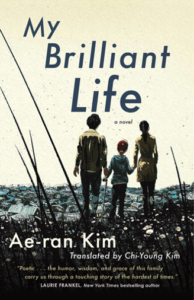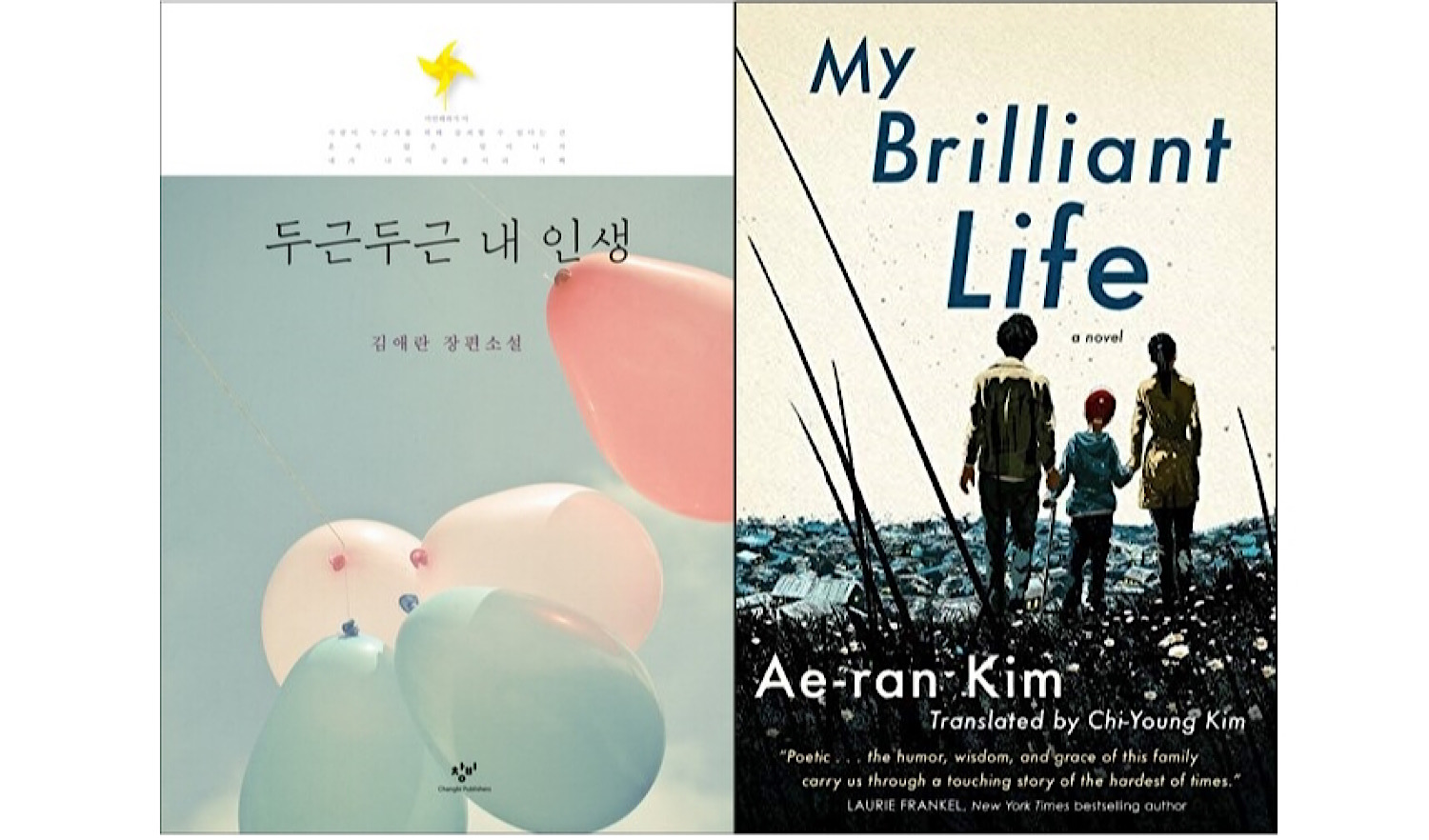ANGELINE KEK WRITES — How would you feel living in an 80-year-old’s body as a teenager? What would you do if you knew your days were numbered? How would you like to be remembered?
My Brilliant Life (2021) by Korean author Ae-ran Kim follows a 16-year-old boy named Areum with Progeria, a rare disease that causes rapid aging and deterioration of the body starting in the first two years of life. Areum, also the narrator, was born as a result of a teen pregnancy. Mira and Daesu became pregnant with Areum while both were 17-year-olds in high school. With the coming of a child, they found themselves thrust headfirst into adulthood. Under the scrutiny and disappointment of their village and families, they had to find a way to figure out their lives together.

Freshly and ingeniously translated by acclaimed literary translator and editor, Chi-Young Kim, My Brilliant Life has gone on to receive a myriad of applauding reviews, including an appearance in The Oprah Magazine. In 2014, the novel was adapted into a skillfully executed movie and represented South Korea in several film festivals.
The story unfolds at the very beginning of Mira and Daesu’s love story. At 17, Mira was a highly pursued beauty blessed with a siren’s voice. On the other hand, Daesu seemed to have nothing going for him except his talent for Tae Kwon Do, a career which ended abruptly after he was suspended from school for beating up his roommate. Despite other eager suitors, Mira found Daesu intriguing: “I didn’t fall in love with Daesu because he didn’t have dreams. I fell in love with him because he pretended not to have any dreams. I thought he was like me — like he was hiding, just like I was.” When Mira and Daesu broke the news of the pregnancy to their families, they were met with overwhelming disapproval. When Areum was born, their happiness was short-lived as he started showing signs of a strange disease.
Mira and Daesu’s future were plagued with new challenges and uncertainty. A multitude of problems presented themselves following premature parenthood. The financial hardships of raising a child without solid footing, the disconnection and inability to relate with friends at different stages of life, and a slap in the face from the reality of a money-fueled society. As Areum’s disease worsens, hospital bills began stacking.
Areum grows up to be a voracious bookworm, reading anything and everything. His only friend is Little Grandpa Jang, who is the opposite of Aerum. Even though he is old enough to be Aerum’s grandfather, Little Grandpa Jang acts like a kid and lives with his father. Homeschooled and isolated from his peers, overlearning is the only way Aerum could try to “catch up” and feel normal. “That way, in the event I ever made a friend, I could hold up my end of a conversation.” Surrounded only by his parents and the looming shadow of death, Areum wanted to leave them with one last gift. He started to write their love story.
Areum’s eyes began to degenerate, leading to blindness. He was recommended for in-hospital care, a treatment too expensive for his parents. In a moment of dejectedness, Areum deleted the story he was writing.

Sumi, Mira’s friend who is married to the producer of a reality TV show that tells the stories of unfortunate people, makes it possible for Areum to be featured. The episode became a wild success. Munificent donations were made, allowing Areum the treatment he needs. Yet, the best thing to come out of it is not the money — a girl had written to him, a letter of admiration and companionship.
“Hi, I’m Lee Seoha. I’m sixteen, the same as you. Like you, I’m also bald … Everyone considers you prematurely aged, but I’ll just think of you as a mountain.”
Areum never had a friend his age. For the first time, he finds himself in the company of a like-minded teenager. As they exchanged emails, Areum catches himself developing a crush. Unprecedentedly, he feels like a normal kid, daydreaming about someone who makes his stomach flutter. He starts playing video games as a kid would and restarts his writing project. The girl had told him that she finds writers “the coolest”.
In a twist of fate, the reality show reached out to the girl to make a sequel to Areum’s story, only to find out that Seoha never existed. She was a middle-aged man impersonating a teenage girl, gaining research for a screenplay about a love between a girl and a boy with terminal illness.
Modern capitalistic society thrives on transactional relationships. It erases authenticity. In making the episode on Areum’s story, the producer and writer’s focus is to appeal to the audience by any means necessary. “I couldn’t look too healthy or too repulsive; I needed to make my misfortune palatable enough for people to watch.” Upon discovering the friendship between Areum and his penpal, the producer pestered Areum to let him reach out to her for a sequel despite Areum’s initial disagreement. In their eyes, Aerum was just another profitable sob story.
“[Aerum] is on his deathbed. [His] last wish is to feel his mother’s belly. ‘Mom, when this baby is born, can you tell it that its older brother put his hand on its head?’ … Mom squeezed my hand instead of answering.”
My Brilliant Life revolves around polarities – life and death, young and old, parent and child. A child forced to grow old. Parents reliving youth through the curious eyes of a kid. While the story started with a promise of death, it ends with the hopefulness of new life.

Angeline Kek is a book reviewer and contributing staff writer for Asia Media International. As a recent graduate from LMU, she majored in English with a concentration in poetry and creative writing. She is interested in poetry and writings that are unhesitatingly honest.

